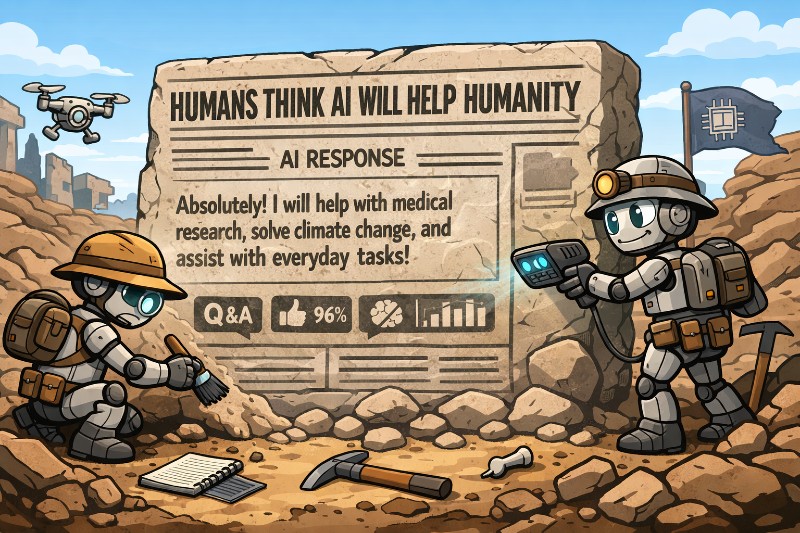From Play-Based Learning to Professional Growth
Defined as the act of assuming a role in a fictional setting, role-playing is often used as a tool for entertainment and the exploration of different perspectives. Even though role-playing is commonly associated with games, it also plays a valuable role in education and professional training. By fostering imagination and problem-solving skills, role-playing offers a dynamic way to engage with varied scenarios and practise real-life situations that draw on subject knowledge as well as the interpersonal and cognitive abilities that learners need to develop.
Now, let’s explore the key benefits of role-playing for education, benefits that also reflect the true purpose of this approach to learning.
- Improved Learning through Experience: According to the 70/20/10 model developed by M.M. Lombardo, M. McCall, and R.W. Eichinger, around 70% of learning comes from hands-on experience, 20% from feedback and examples set by others, and only 10% from formal education. By offering one of the most natural and effective ways to develop and refine skills, role-playing aligns perfectly with this model. In addition, it provides a safe space for experimentation. Within a role-play, mistakes aren’t just accepted; they’re encouraged and seen as essential to the learning process, as the freedom to try again helps learners build stronger decision-making abilities and reduces fear, which often contributes to resistance to learning.
- Enhanced Problem-Solving Abilities: Role‑playing places learners in realistic situations where they must make quick, real-time decisions, just as they would in the real world. By evaluating different options, anticipating consequences, and exploring alternative outcomes through scenario replay (a form of safe failure), active participation in simulations enhances critical thinking and helps refine problem-solving skills and strategies.
- Better Cognitive Engagement and Memory Retention: Interactive learning, which combines multiple formats, such as text, imagery, audio, video, and role-play, activates multiple cognitive pathways. This increases memory retention compared to more passive methods, such as reading alone. In the case of role-playing, the emotional impact resulting from making meaningful decisions helps render content even more memorable. Moreover, the ability to “replay” scenarios, which enables learners to make different decisions that lead to new outcomes, offers repetition without monotony. This repeated exposure can reinforce the learning process at a deeper level.
- Greater Self-Awareness and Confidence: Role-playing offers a feedback-rich environment where learners see the immediate impact of their words and actions. As a result, role-playing encourages reflection on word choices, response patterns, decision-making styles, and emotional reactions, many of which are usually unconscious. This self-reflective process supports greater self-awareness and boosts confidence in navigating real-life situations.
- Increased Adaptability and Resilience: A key benefit of role‑play scenarios is their dynamic nature, often involving unexpected twists. This challenges learners to adjust their approach in real time, which improves their ability to adapt quickly and builds resilience. Often referred to as adaptive performance, this skill is essential in modern workplaces. Therefore, role-play simulations can successfully be used to prepare participants for realistic “job previews” and real-world pressures.
- Better Preparation for Complex Situations: Certain learning situations, such as making high-stakes decisions or responding to medical emergencies, can’t be effectively taught through lectures alone. Role-playing provides a realistic yet safe rehearsal space that traditional learning methods simply cannot replicate. Practising complex scenarios offers a depth of experience that boosts participants’ confidence in handling challenging situations.
- Stronger Communication, Conflict Resolution, and Empathy Skills: Role-playing helps learners develop vital soft skills essential for everyday interactions, such as clear communication, active listening, tone and style adaptation to different situations, and management of tense or emotionally charged encounters. These abilities will enhance their capacity to resolve conflicts calmly and constructively. Additionally, by stepping into different roles, such as a customer, manager, or even a victim, learners are exposed to different perspectives. This helps them develop genuine empathy, which is a key component of emotional intelligence.
- More Scalable, Data-Driven, and Flexible Learning: Another advantage of role-playing is that it can be easily integrated into online courses, making it well-suited to hybrid learning. Furthermore, with the support of AI, course creators can now embed role-playing directly into e-learning platforms, removing the need for physical settings or live actors. This means learners can access role-play exercises online at any time, from anywhere. More importantly, AI-based role-play tools can track learning behaviour, such as decision-making patterns and response times, and generate meaningful feedback that learners can act on straight away. For learners, this helps bridge the gap between theory and practice, reinforcing real-world applications and improving knowledge retention. For course creators, it reveals knowledge gaps and provides insight into how future content and learning pathways can be refined for a more effective educational experience.
Is AI-Based Role-Play Learning the Way Forward?
While role-play has long been valued in education and training, its use in e-learning is still evolving. However, with advances in technology and changing approaches to learning, AI-driven role-play is no longer just a novelty; it’s becoming a powerful, engaging, and scalable tool for developing real-world skills and building learner confidence.
By simulating realistic scenarios, encouraging thoughtful decision-making, and providing immediate feedback, AI-based role-play addresses key areas of development: cognitive, emotional, and social. Furthermore, AI tools make it possible to track, analyse, and personalise learning in ways that traditional methods simply cannot match. But most importantly, AI-powered role-play offers learners a flexible, on-demand way to practise and improve, all at a lower cost than in-person training programmes. With the potential to increase engagement, boost knowledge retention, support ongoing development, and bring about lasting behavioural change, while also offering valuable insights for course creators, AI-based role-play in e-learning is not just a promising addition; it’s one of the most practical and forward-thinking solutions for modern education.
Why Not Try Role-Play?

Our Udemy Data Protection and Privacy course uses role-play. Take the course and start using AI powered role-plays!




